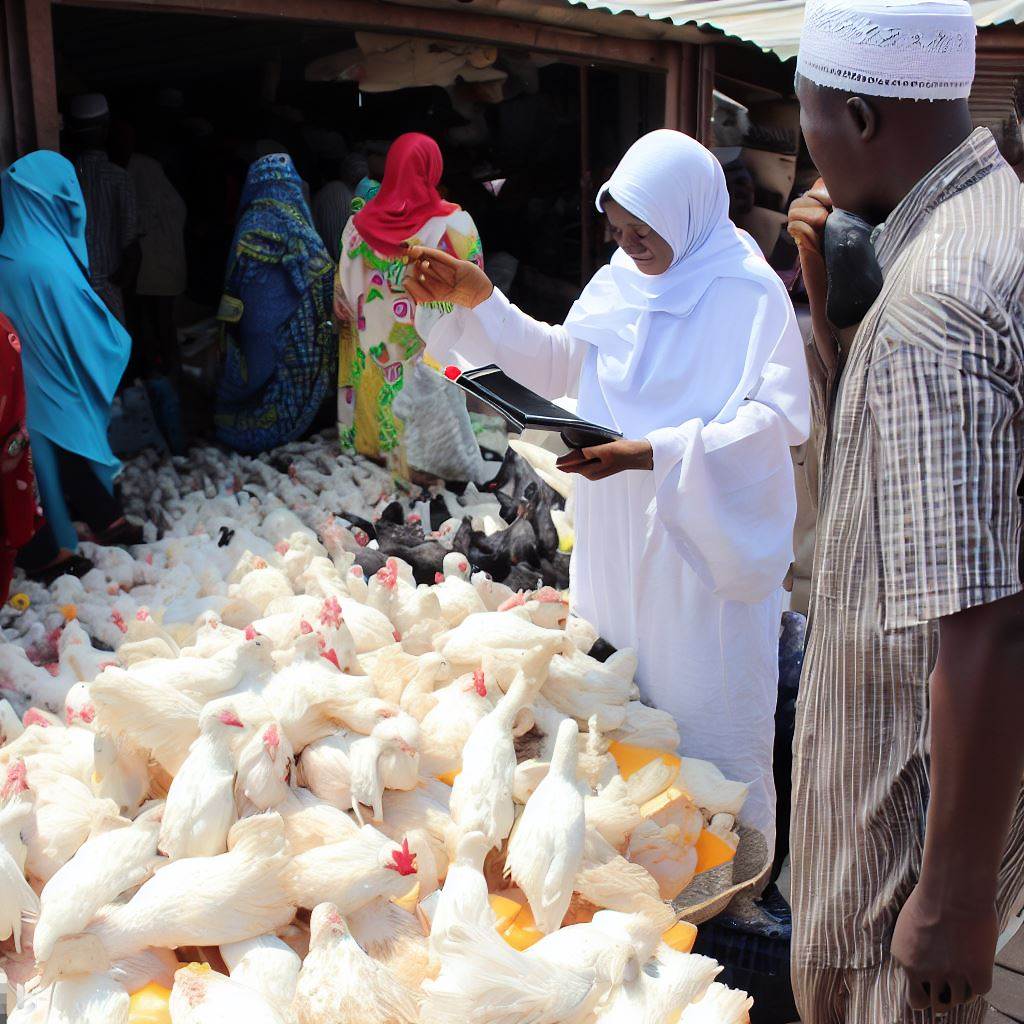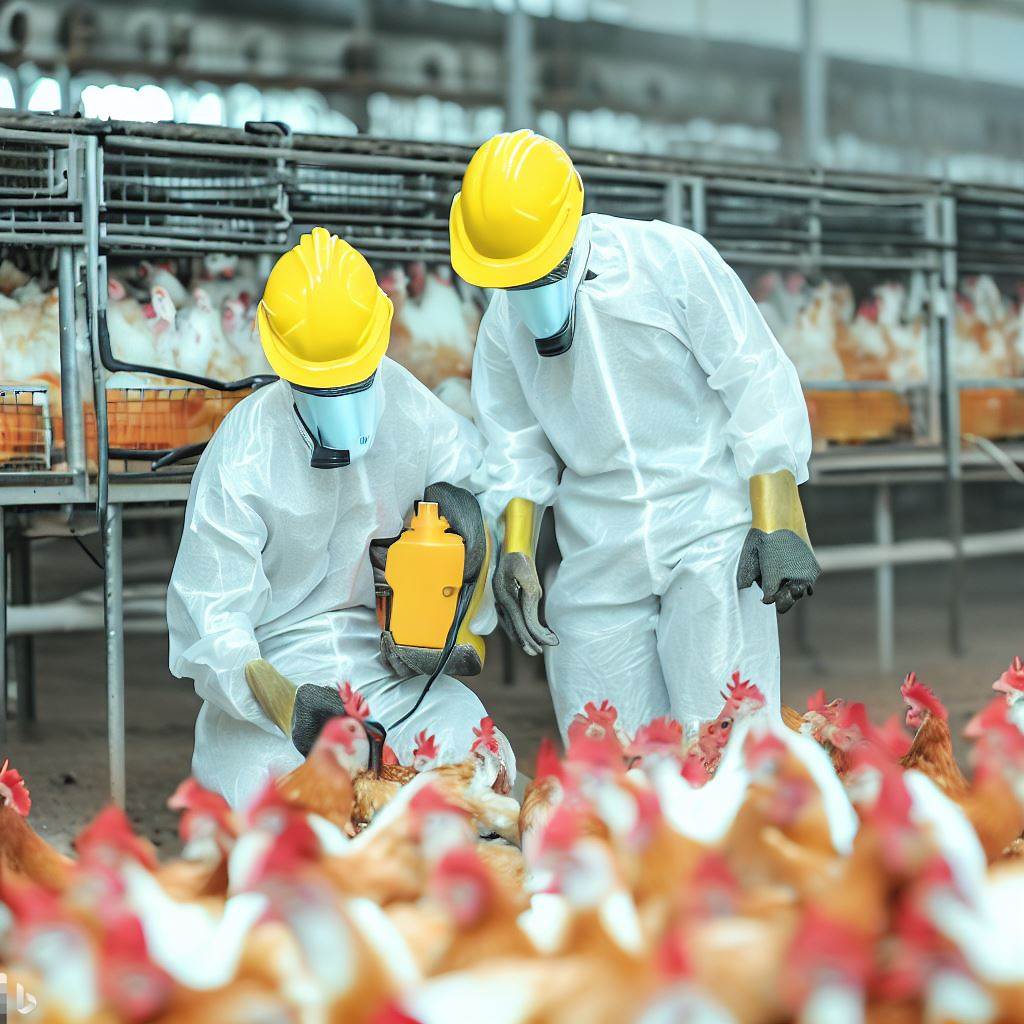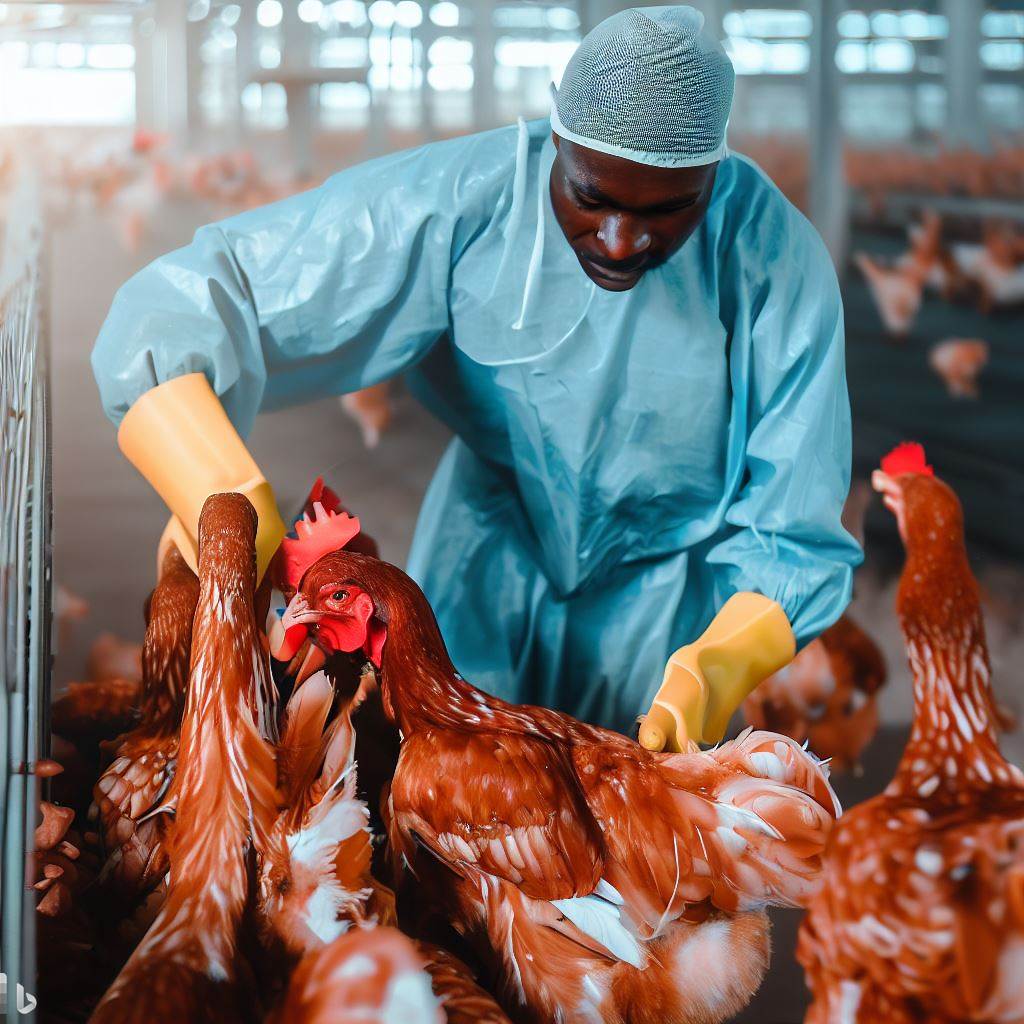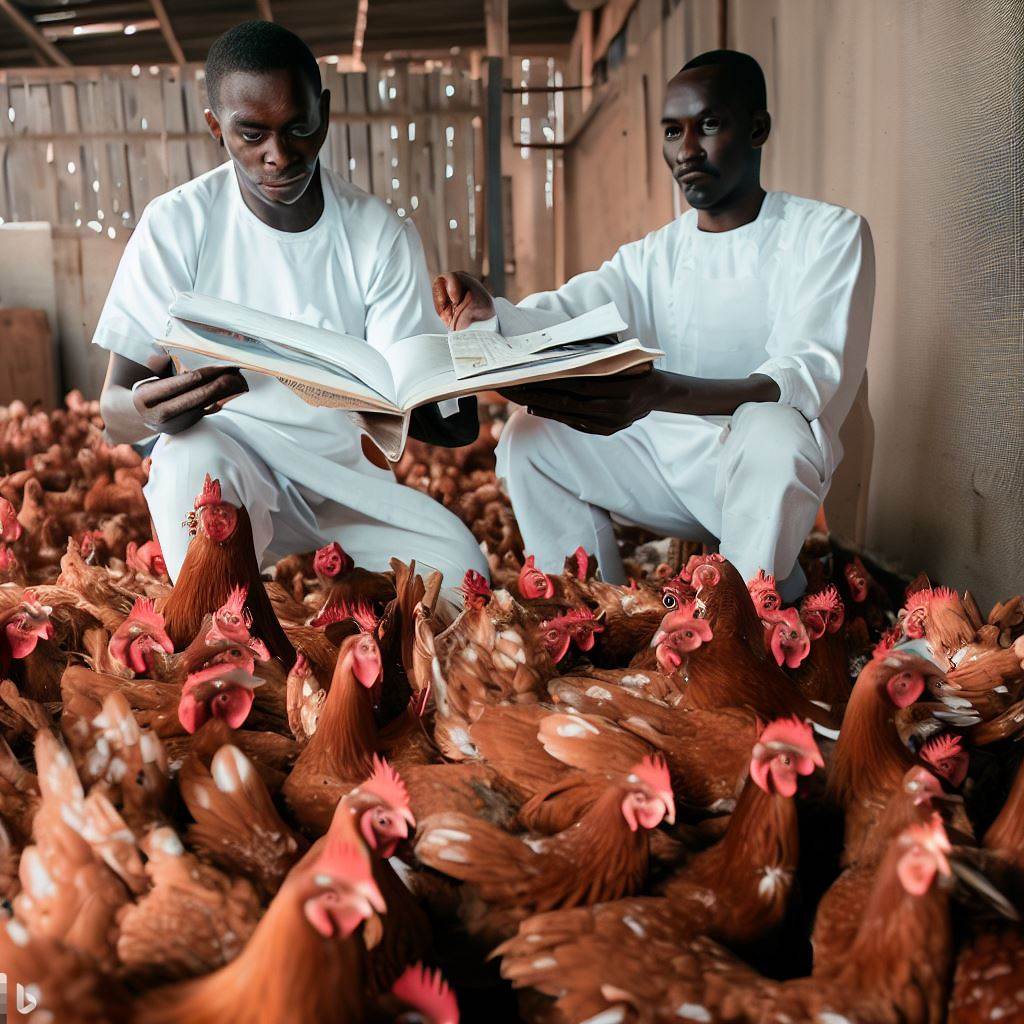Introduction
In Nigeria’s poultry industry, comprehending market demand is pivotal.
This knowledge empowers businesses to make informed decisions and cater to consumer requirements.
This blog post delves into the factors shaping poultry demand, prevalent market trends, and prospects for growth.
Understanding the market demand for poultry in Nigeria holds paramount importance for the country’s poultry sector.
Such insight not only aids in crafting strategic business choices but also ensures the alignment of products with consumer preferences.
By scrutinizing market demand, businesses can optimize production, distribution, and pricing strategies.
Analyzing poultry market demand fosters a foundation for well-founded business decisions.
This practice enables stakeholders to ascertain the types and quantities of poultry products that are sought-after, thus minimizing the risk of overproduction or underproduction.
Consequently, resources can be directed optimally to meet consumer needs while maximizing profitability.
This blog post not only elucidates the current factors influencing poultry demand but also highlights ongoing market trends.
Recognizing these trends equips entrepreneurs with the ability to adapt swiftly to changing preferences and capitalize on emerging opportunities.
Consequently, the Nigerian poultry industry can position itself for sustained growth.
By exploring the nuances of market demand for poultry in Nigeria, this article underscores its pivotal role in shaping business outcomes.
Informed by these insights, stakeholders can navigate the industry’s complexities, anticipate shifts in consumer behavior, and steer their ventures toward enduring success.
Current State of Poultry Market in Nigeria
A. Statistics and data showing the growth and current state of poultry market in Nigeria
The poultry market in Nigeria has experienced significant growth in recent years.
According to statistics, the poultry industry contributed about 25% to the agricultural GDP in Nigeria in 2020.
The market demand for poultry products, such as eggs and chicken, has been steadily increasing.
Data reveals that Nigeria has one of the largest poultry populations in Africa.
The poultry market has witnessed a compound annual growth rate of 7.2% in the past five years.
B. Factors contributing to the development of the poultry industry in Nigeria
Several factors have contributed to the development of the poultry industry in Nigeria.
Increased urbanization and a growing middle class have led to an increase in poultry consumption.
Government initiatives and policies to promote agriculture and poultry farming have played a vital role.
Technological advancements and improved farming practices have increased production efficiency.
The availability of investment opportunities in the poultry sector has attracted both local and foreign investors.
C. Challenges faced by poultry farmers in meeting market demand
Despite the positive growth, poultry farmers in Nigeria face several challenges in meeting the market demand.
Inadequate access to affordable and quality feed, vaccines, and medication impacts productivity.
Infrastructural limitations, such as inadequate storage and transportation facilities, hinder market distribution.
High production costs, including energy costs and labor expenses, affect profitability for farmers.
Outbreaks of poultry diseases, such as bird flu, pose a risk to production and market stability.
Competition from imported poultry products puts pressure on local farmers to meet market demand.
Read: Effective Strategies for Poultry Production in Nigeria
Factors Influencing Market Demand for Poultry in Nigeria
A. Population growth and its impact on the demand for poultry
- Rapid population growth in Nigeria has increased the demand for poultry products.
- The growing population means there are more mouths to feed, leading to higher poultry consumption.
- With increased urbanization and improved living standards, more Nigerians are adopting poultry as a source of protein.
B. Economic factors affecting consumer behavior towards poultry consumption
- Income levels play a significant role in determining the demand for poultry products.
- As disposable income increases, consumers are more likely to spend on high-quality poultry products.
- Fluctuations in prices, affordability, and inflation rates also influence the demand for poultry.
- Economic stability and favorable government policies can positively impact consumer behavior towards poultry consumption.
C. Cultural preferences and dietary habits influencing demand for poultry
- Poultry, especially chicken, is a staple in Nigerian cuisine, making it a cultural preference.
- Religious and cultural practices influence the demand for halal or kosher poultry products.
- Traditional dishes and recipes heavily rely on poultry, driving the demand for specific poultry breeds.
D. Health and nutritional awareness among consumers
- Increased awareness of the health benefits of poultry, such as being a rich source of protein, drives demand.
- Consumers are becoming more conscious about their dietary choices and prioritizing healthier alternatives.
- Poultry products are often considered a healthier option compared to red meat, driving demand.
In a nutshell, several factors influence the market demand for poultry in Nigeria.
The rapid population growth, economic factors, cultural preferences, and health awareness among consumers all play a significant role.
As the population continues to grow, and economic conditions improve in Nigeria, the demand for poultry products is expected to rise.
It is crucial for stakeholders in the poultry industry to adapt their strategies to meet these changing market demands.
By understanding these factors, businesses can better position themselves to cater to the evolving needs and preferences of Nigerian consumers.
Read: The Role of Technology in Nigeria’s Poultry Industry

Gain More Insights: Gender Diversity in Nigeria’s Agricultural Operations Management
Gain More Insights: Pioneers of the Farm Manager Profession in Nigeria
Challenges and Opportunities in Meeting Market Demand for Poultry
A. Availability and cost of poultry inputs (feed, vaccines, etc.)
Ensuring a steady supply of affordable poultry inputs is a significant challenge for farmers.
The availability and cost of feed, vaccines, and other essential inputs can greatly affect profitability.
Efforts are needed to improve local production of these inputs and reduce import reliance.
B. Poultry farming practices and techniques to efficiently meet demand
Farmers must adopt modern farming practices and techniques to increase efficiency and meet market demand.
This includes implementing biosecurity measures, proper waste management, and improved breeding techniques.
Training programs and knowledge-sharing platforms can help educate farmers on best practices.
C. Infrastructure development in the poultry industry
Inadequate infrastructure, such as storage facilities and transportation networks, hinders the growth of the poultry sector.
Investments in developing cold storage facilities and improving road networks are essential to meet market demand.
This will reduce post-harvest losses and ensure the timely delivery of poultry products to consumers.
D. Government policies and support for the poultry sector
Government policies play a crucial role in creating a conducive environment for poultry farming.
Supportive policies, such as subsidies on inputs or tax incentives, can encourage investment in the sector.
A favorable policy framework should also address challenges related to disease control and market access.
E. Opportunities for innovation and technology adoption in poultry farming
There are immense opportunities for innovation and technology adoption in the poultry sector.
Advanced technologies, such as automated feeding systems and data analytics, can improve production efficiency.
Research and development efforts should focus on developing cost-effective and sustainable solutions for poultry farmers.
In the end, meeting market demand for poultry in Nigeria requires addressing various challenges while embracing opportunities.
The availability and cost of poultry inputs, adoption of efficient farming practices, infrastructure development, government support, and technological innovation are key areas to focus on.
By overcoming these challenges and capitalizing on opportunities, the poultry sector can thrive and contribute to Nigeria’s food security and economic growth.
Read: Sustainable Practices for Poultry Producers in Nigeria
Strategies for Poultry Farmers to Understand and Meet Market Demand
A. Conducting market research to identify consumer preferences and trends
As poultry farmers, it is crucial to conduct regular market research to understand consumer preferences and trends.
This will help us stay ahead of the competition and meet the market demand effectively.
By keeping a close eye on consumer preferences, we can identify the types of poultry products that are in high demand and adjust our production accordingly.
Market research can be done through surveys, interviews, and analyzing sales data.
It will give us insights into what consumers are looking for in poultry products, including factors such as taste, quality, price, and packaging.
Armed with this information, we can make informed decisions on the type of poultry breeds, feeds, and production methods that will appeal to our target market.
B. Diversification of poultry products to meet different market segments
To effectively meet market demand for poultry in Nigeria, it is essential to diversify our product range.
This means offering a variety of poultry products that cater to different market segments and consumer preferences.
By diversifying our product range, we can tap into multiple markets and increase our chances of success.
For example, while some consumers might prefer fresh chicken, others might prefer processed poultry products such as smoked or marinated chicken.
By offering both options, we can cater to a wider range of customers and capture a larger market share.
Additionally, we can explore the production of value-added products such as sausages, nuggets, or ready-to-cook meals to cater to the growing demand for convenience foods.
C. Strengthening supply chain management for efficient distribution
Efficient supply chain management is crucial for poultry farmers to meet market demand effectively.
A well-managed supply chain ensures that our poultry products reach consumers in a timely manner and in the desired condition.
This includes various stages, such as sourcing raw materials, production, storage, packaging, and distribution.
By investing in modern storage facilities, refrigeration systems, and transportation infrastructure, we can minimize product spoilage and ensure the freshness and quality of our poultry products.
Collaborating with reliable logistics partners can also help streamline the distribution process and ensure that our products reach distant markets efficiently.
D. Collaboration with other stakeholders in the poultry industry
Collaboration with other stakeholders in the poultry industry can be mutually beneficial for meeting market demand.
Partnering with suppliers, distributors, and retailers can help us access a wider network of customers and expand our market reach.
By collaborating with these stakeholders, we can also stay informed about industry trends, innovations, and consumer preferences.
Furthermore, partnerships with research institutions, government agencies, and industry associations can provide access to valuable resources, knowledge, and support for the poultry sector.
By working together, we can tackle common challenges, advocate for favorable policies, and collectively contribute to the growth and development of the poultry industry in Nigeria.
E. Continuous improvement and adaptation to changing market dynamics
The poultry industry is dynamic, with market demand constantly evolving.
To keep up with these changes, it is essential for poultry farmers to continuously improve and adapt their strategies.
This includes staying updated on market trends, technological advancements, and changing consumer preferences.
Regularly reviewing our production methods, product offerings, and marketing strategies will enable us to adjust our operations to meet the evolving demands of the market.
Embracing innovation and adopting new technologies can also help us enhance productivity, reduce costs, and improve the overall efficiency of our poultry farms.
In essence, understanding and meeting market demand in the poultry industry requires a proactive approach and continuous adaptation.
By conducting market research, diversifying product offerings, strengthening supply chain management, collaborating with stakeholders, and embracing innovation, poultry farmers in Nigeria can position themselves for success in a rapidly changing market.
Read: A Day in the Life of a Nigerian Poultry Farmer
Conclusion
Recap the importance of understanding market demand for poultry in Nigeria
The market demand for poultry in Nigeria is a vital factor to consider for farmers and businesses in the poultry industry.
Understanding the demand helps in making informed decisions regarding production, pricing, and marketing strategies.
By analyzing market demand, stakeholders can identify potential gaps or opportunities for growth.
Key takeaways from the blog post
- The Nigerian poultry market is experiencing significant growth due to population increase and changing consumer preferences.
- Factors influencing market demand include income levels, urbanization, and cultural practices.
- Importation restrictions have led to a surge in local poultry production, creating opportunities for local farmers and businesses.
- Continuous research and adaptation to consumer demands are essential for long-term success in the poultry industry.
Encourage further exploration and research on the topic
As the poultry market in Nigeria continues to evolve, further research is needed to understand changing consumer preferences, market dynamics, and technological advancements.
By staying updated on market trends, stakeholders can develop strategies to meet the evolving demands of Nigerian consumers.
Exploring new technologies, sustainable practices, and innovative marketing approaches can lead to competitive advantages and business growth.
The future success of the poultry industry in Nigeria hinges on a deep understanding of market demand and continuous efforts to meet consumer expectations.




